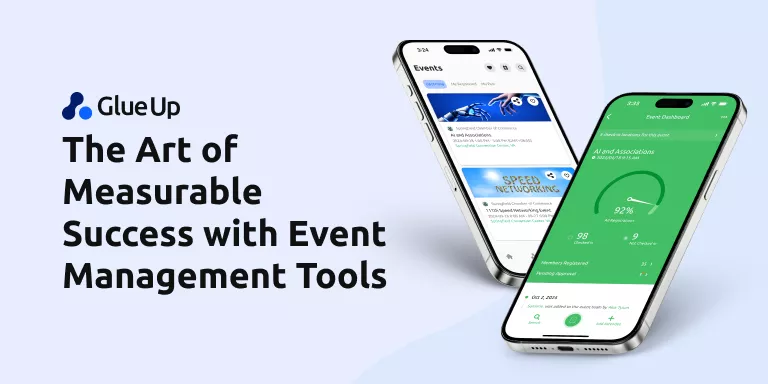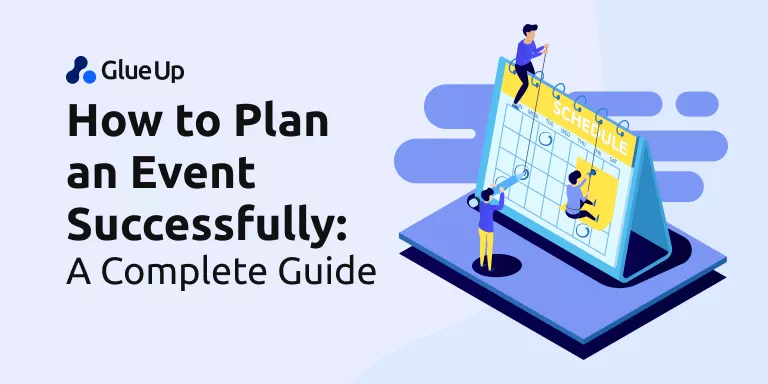
So you have an event coming up, and planning is starting to look like a losing battle.
Have we hit the nail on the head?
Even if we’re off-target, you get what we’re talking about.
Event management skills are not always the soft-skills that other people would have you believe. Yes, you can have people skills, and good time-management, and understand scheduling, blablabla. But it’s without a doubt becoming more of a requirement for you to host engaging, tech-driven, and shareable events for attendees while supporting any partners or sponsors you might have.
So sure, you’ve got all the nice people and time-management skills you could ever muster, but without these x hard-skills, your event may hang in the balance.
Quick Reads
- Email Marketing Prowess
- Event Page Design
- Attendee Tracking
- Contact Management
- Event-Tech Knowledge
- Event Space Matching
- Speaker Synergy
Email Marketing Prowess

Emailing is simply the easiest and more cost-effective form of marketing and communication any organization can muster. This is no different for events, and having even a broad idea of how email marketing works will help your attendance immensely.
Email marketing is different from emailing, in the fact that you really shouldn’t be blasting emails from your inbox. You need to be using email marketing tools to do this like mailchimp, mix, or if you want to be more targeted, event-email-marketing tools like us here at Glue Up.
These tools specialize in helping you create great looking, dynamic, and professional emails that get delivered en-mass without tripping spam filters that you would be had you blasted emails from you inbox in some huge CC fiasco. They’re typically easy to use, but may require some web-admin interaction to help you set up the cross-domain installation so that emails that are sent from these tools use your email server URL names.
Emails like this require some design skills, but if you’re not a stickler, you can get away with templates provided by the tools. While the obvious use-case is to use these to invite attendees, they’re also super helpful for reminding them, delivering their tickets, links, and even post-event surveys.
Event Page Design
Your event needs a home-base, and a website is perfect for that, especially in the age we’re in now where everyone is online. You can deliver information, scheduling, speaker slots, maps of the event space, process registrations and ticketing and more.
Making an entire website dedicated to large events is an option but for one-off or small scale events that don’t require so much elbow grease should opt to use event-website builders. They let you borrow a domain name, drag-and-drop design the website, or in some cases, entirely build it for you based on a few of your event parameters and details.
Having a website also make it more professional which is great for enticing sponsors or vendors to support your event, of course you will need to give kudos on said event website for them.
Attendee Tracking

Attendee tracking is crucial if you’re looking to host events where the point is to gain some level of ROI, or even better, if you run a series of events. Tracking attendees can be as easy as knowing if they registered online or not, or as finely details as heatmapping the event floor so you know which booth was most popular and so on.
While attendee tracking can get very eerie with how grossly details it can be with facial recognition making it’s way into very large event spaces so it can both check you in and track where you’ve been, who you spoke with, and when spoke to them, it’s probably something out of your league.
What you should be tracking, however, is attendee check-in method, time, and place. This info gives a lot of helpful information into which channel worked best to entice registrations so you know where to invest next time, or it can be helpful to segment your audience further for follow-up engagement.
This is why it’s important to be good at the previous event web page and email set up skillsets. Without good tracking, you can be often blind as to what to do next with these skills. If you need ROI at your event because you’re inadvertaintly selling your product or services, emailing attendees after the event concludes can often times be far more important than before the event. It’s also a great time to get feedback and send surveys too.
This further compounds the absolutely necessity for you to understand the digital landscape of your event so you can:
- Add UTM tracking codes to URLs to see where attendees came from
- Understand where attendees start the registration process and drop out
- Know which email campaign worked best
- What time of day attendees register
- If and when they check in at the event
- Infinitely More
Without this insight, it can be tough to come up with good campaigns. For instance, you could drum up a list of attendees who registered but didn’t check in at the event to either ask what the problem was, or offer a better package for them at a discount for your next event.
Contact Management
Contact Management is also fairly straight forward.
How are you managing contacts to maximize your communication?
Hand-in-hand with attendee tracking, this is the part where you need to take action, and segment your audience. Also known as a CRM, contact management is mean to give you a workshop where you can craft segments of your audience for targeted marketing, notifications, or communication. It also helps you keep a history of every contact’s actions taken with your event from every email open, to every check-in.
This gets even more important as you create lists necessary for email campaigns, push notifications, or special offers. Contacts who register for events but never show up can give clues based on theri demographics about why. Maybe they're too far away from even spaces, maybe they just don't have enough transportation. Info like this can give pertinent clues into how you can improve your event's communication and operations to make it excel.
Event-Tech Knowledge

This is fairly straight forward. Do you know how to set up stage lights? Microphones? Check-in software?
Tech in events is another core part of any event, and it just takes practice and getting used to. We wish we could dive in, maybe in a later article, but if you need any hard skills, it’s should be (fairly) basic knowledge of tech used at events from the mundane to the highly-advanced.
So, it can be pretty easy to set up microphones or projectors and screens, but it can be a little more difficult if your event is going to opt-in for a QR code scanner or tablet display check in counter where these systems need to somehow connect succinctly to your website in order to complete the attendee tracking journey.
Event Space Matching
Event spaces need to match your event, and it’s a fairly good skill to have when it comes to choosing venues. Typically in bigger cities you have less leeway with how event spaces are chosen as the city ordnance will direct certain areas and building to be for events.
However as you get further from bureaucratic-lines, you can have some freedom in where and even how events are hosted. For instance retro-fitting warehouses because they’re cheaper spaces, or hosting tented events, and outdoor events. The world tends to be your oyster when it comes to event spaces as you get further away from city-centers. The closed you are in a city, the more expensive and restricted it will be.
Now as you choose spaces, obviously convenience and aesthetics are nice eyes to have out for these spaces, but also it should be the layout. Does it make sense for you? Do you need more equipment to wall-off certain areas? Is it too big or too small?
You can also partner with event spaces who specialize in helping equip your event with rentable tables, chairs, and even electronics to help facilitate you.
Speaker Synergy

Most events have speakers, and usually those speakers are guests.
Now, while sometimes you can be close to these speakers, and understand who they are, or have some background of past talks they’ve given, it can be detrimental to make sure there’s synergy with who’s speaking or MCing your event.
When you are working with third parties without any prior experience together, it can be a dice-roll when it comes to how they talk to the audience, what they say, and how they’ll say it. It’s important here to make sure you establish either hierarchy over who runs the show, or freedom.
For instance if you have a panel discussion, panelists can often times go on tangents or get off topic for any reason, and it’s the job of the MC to get them back on track. If your MC speaker is not willing or has no experience aligning a panel to the topic when it gets off-topic, then it can potentially bore attendees or in some cases crash an event.
It sounds like it goes again the grain, but if you actually give some responsibility to the speaker and set the expectation that they’re in charge and they have the onus to keep the show on the road, then they’re likely to take it far more seriously, and therefore keep the audience taking it seriously too.
Speakers have a big impact on the attendees, so please make sure your speakers or MCs are in-line with your event’s talking points and that they’re aware they have some level of authority over the stage.
If you’re looking to manage contacts, make web pages, send emails or track attendees, contact us and get a demo, we’ll show you a tour of our platform and how it works to help make your events excel.



